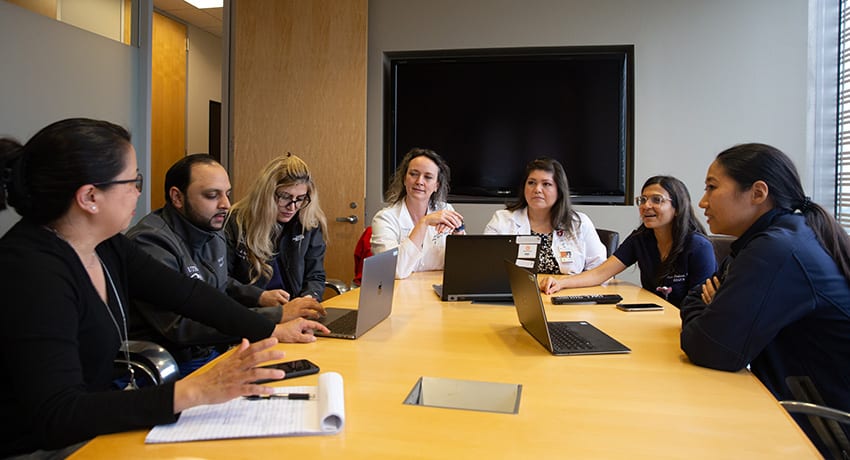Congenital colorectal conditions, like anorectal malformations or Hirschsprung’s disease, are complex diagnoses that require extensive surgeries and treatments to correct in children. However, as those patients age out of pediatric care, their unique health concerns that arise as adults are complex and require special attention and collaboration. A group of surgeons with The University of Texas Health Science Center at Houston (UTHealth) has formed the Comprehensive Congenital Colorectal Program, with both pediatric and adult surgeons. This group has the background and expertise to care for these patients as they make that transition.
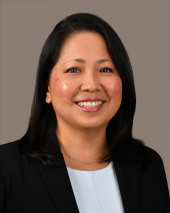
“While these conditions are colorectal in nature, they can also cause issues with several other organ, skeletal, and muscular systems in the body. In forming this group, we wanted to make sure we included doctors from many other disciplines to give these patients the most complete care possible,” said Akemi Kawaguchi, MD, associate professor of pediatric surgery at McGovern Medical School at UTHealth, who initiated the idea for the program.
In addition to pediatric surgeons, the group also includes adult colorectal surgeons, urologists, gynecologists, and neurosurgeons.
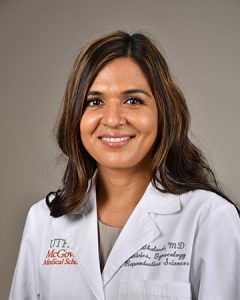
“There is a deficit in care during this transitional period when young people need physical, social, and psychological support as they enter adulthood,” said Asha Bhalwal, MD, assistant professor of obstetrics, gynecology, and reproductive services at McGovern Medical School. “That is why there is a need for this clinic as these patients are being transitioned from pediatric clinics to adult care.”
Kawaguchi, along with Linda Li, MD, assistant professor of pediatric surgery at the medical school, uses her background as a pediatric surgeon to consult on cases and provide input on the procedures done for these patients as children, specifically how those surgeries and corrections need to be handled when dealing with the adult patient.
“A lot of the surgeries done on children with colorectal disorders aren’t always taught to adult colorectal surgeons, so our background as pediatric surgeons allows us to provide knowledge and expertise related to how those organs now interact with each other in the adult patient based on what was done for them as a child,” Li said.
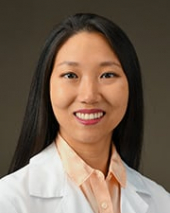
Being able to see patients in this type of setting has been a dream of Kawaguchi’s for a long time.
“We started talking about this concept in 2019, but the COVID-19 pandemic brought things to a standstill,” said Hajar Ayoub, MD, assistant professor of surgery and a urologist in the group. “It is nice to have this group finally be able to start seeing patients and providing them with the care they need.”
John Caridi, MD, associate professor of neurosurgery, explained that some procedures done for these patients, such as the cutting of a ligament of the spine to correct a tethered spinal cord, are fairly straightforward and simple, while others, such as surgically correcting scoliosis, can be much more complex.
These procedures can also be complicated by the other surgeries the patient has undergone previously to correct problems with their congenital condition. “If there is significant scarring or if the patient has had numerous surgeries to that area already, we may decide to utilize a different technique,” Caridi said. “It is definitely helpful to have the surgeons who did the previous surgery readily available, particularly since they have already been there and know how things looked to begin with. Communication among the surgeons is key.
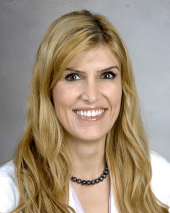
The group not only provides surgical intervention and reconstruction for these patients when needed, but also provides non-operative management of incontinence, menstrual cycles, and fertility. Hajar Ayoub offers Botox injections and neuromodulation as a treatment option for issues related to the bladder and Bhalwal helps patients decide which contraceptive option might be best for them.
Bhalwal stressed the importance of seeing patients in a setting like this as one of the best ways to make sure they are getting the comprehensive care they need. “You can’t serve these patients effectively unless you get all of the doctors they might need to see together in one place,” she said.
Marianne Cusick, MD, assistant professor of surgery and colorectal surgeon in the group, agrees with Bhalwal. “This is the way medicine should be practiced,” she said.
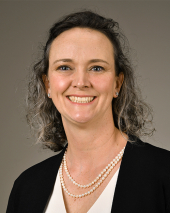
Cusick, along with Amit Agarwal, MD, assistant professor of surgery and colorectal surgeon, are able to provide perspective on the colorectal issues these adults face such as screening for colon cancer, treatment for diarrhea and constipation, and treatment of fecal incontinence.
“When these patients come to see us, we can really give them a picture of what they can expect during adulthood based on the treatments they received as kids and how we can help them with anything that might come up,” Agarwal said.
Kawaguchi stressed the importance of these patients finding doctors who can provide relief and guidance for treatment options as they live with their conditions into adulthood. “If they don’t get plugged in with the right physicians, they just live with their symptoms. We want to be able to help them not just live with their condition, but thrive,” she said.
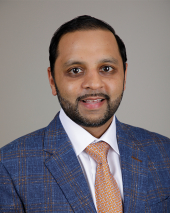
The group meets on a quarterly basis and hopes to increase its frequency in the future.
“So far our patients have been incredibly grateful. They think they are the only one in the world with their particular condition and when they come to see us, they realize they aren’t alone,” Kawaguchi said.
The group is located within the UT Physicians Pediatric Surgery – Texas Medical Center clinic. UT Physicians is the faculty practice of McGovern Medical School. To contact these specialists, call 832-325-7234 and ask to speak with someone with the Complex Congenital Colorectal Program.

